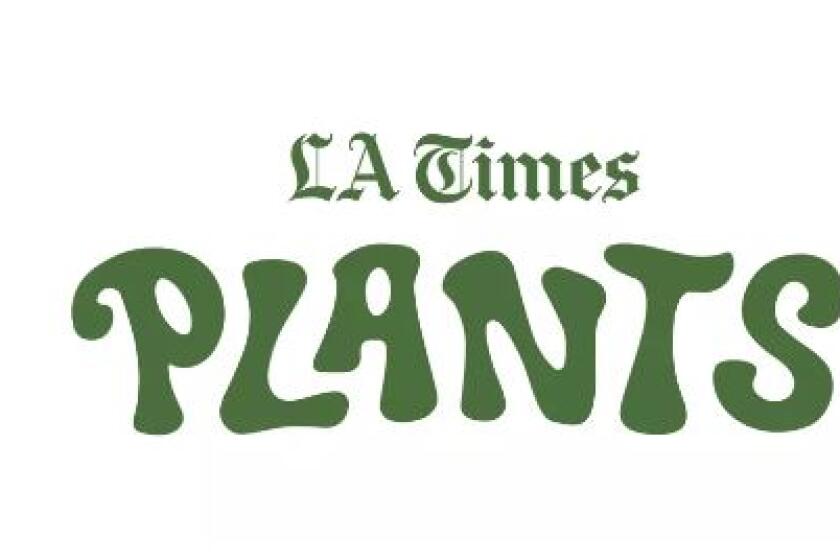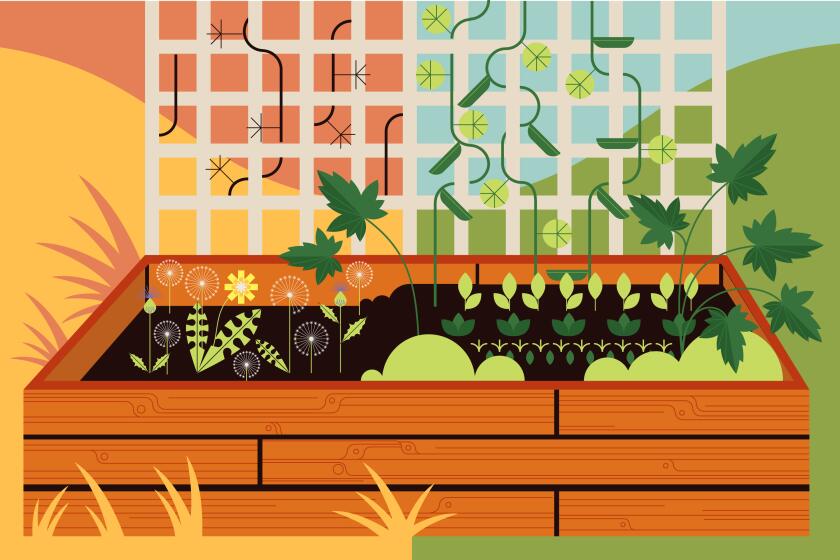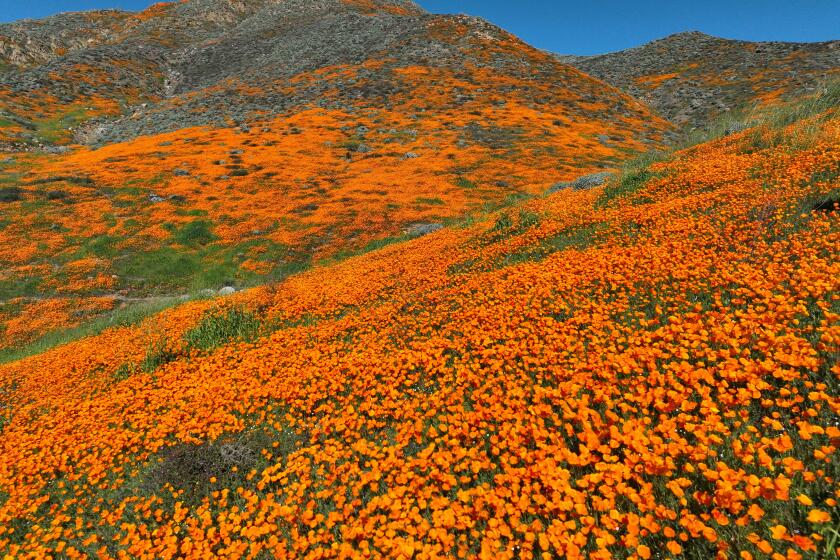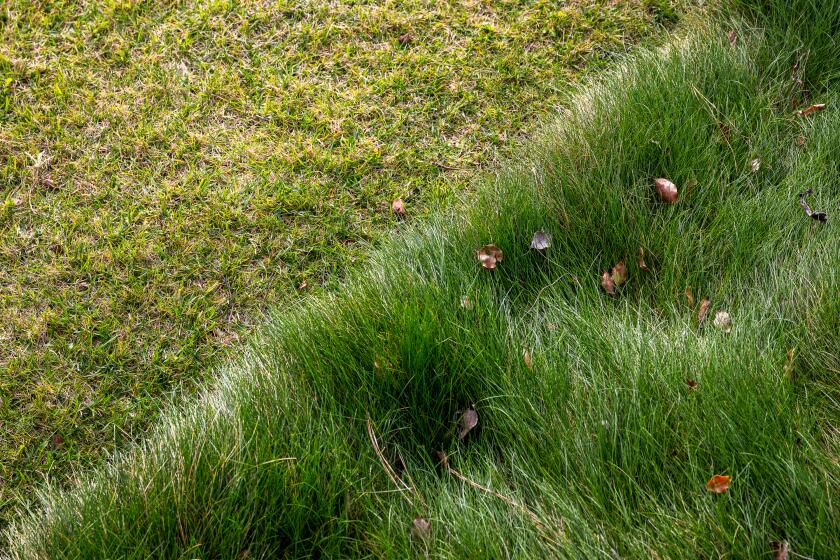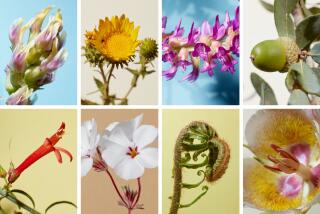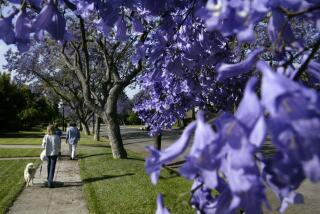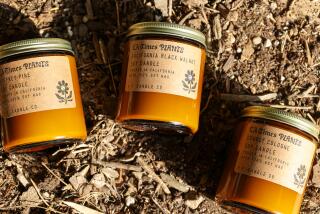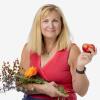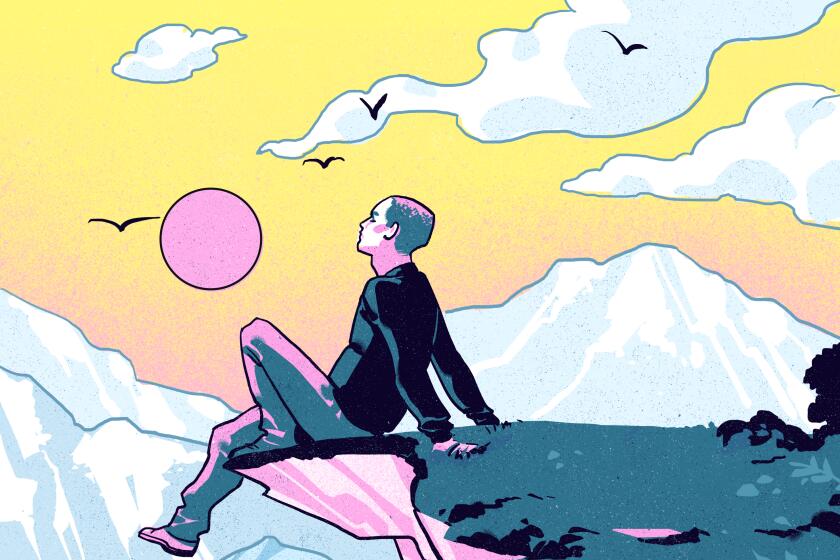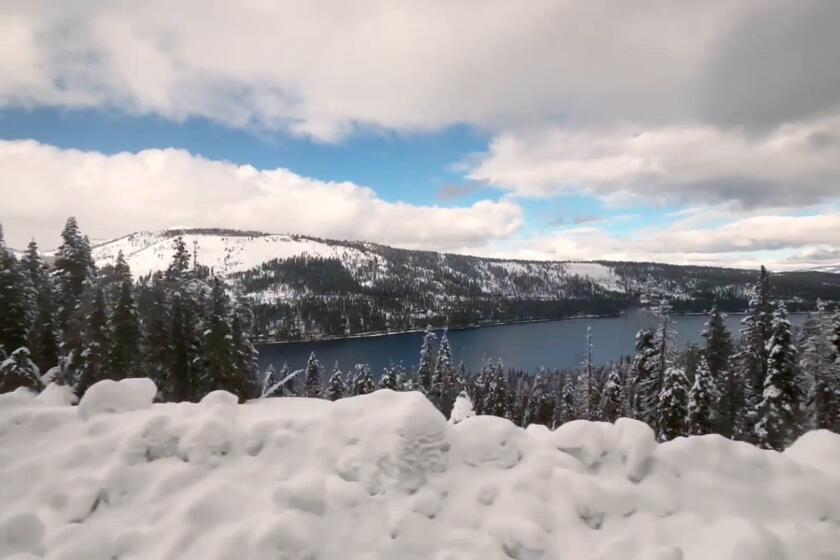Will 2024 give us a superbloom — and where to see wildflowers now
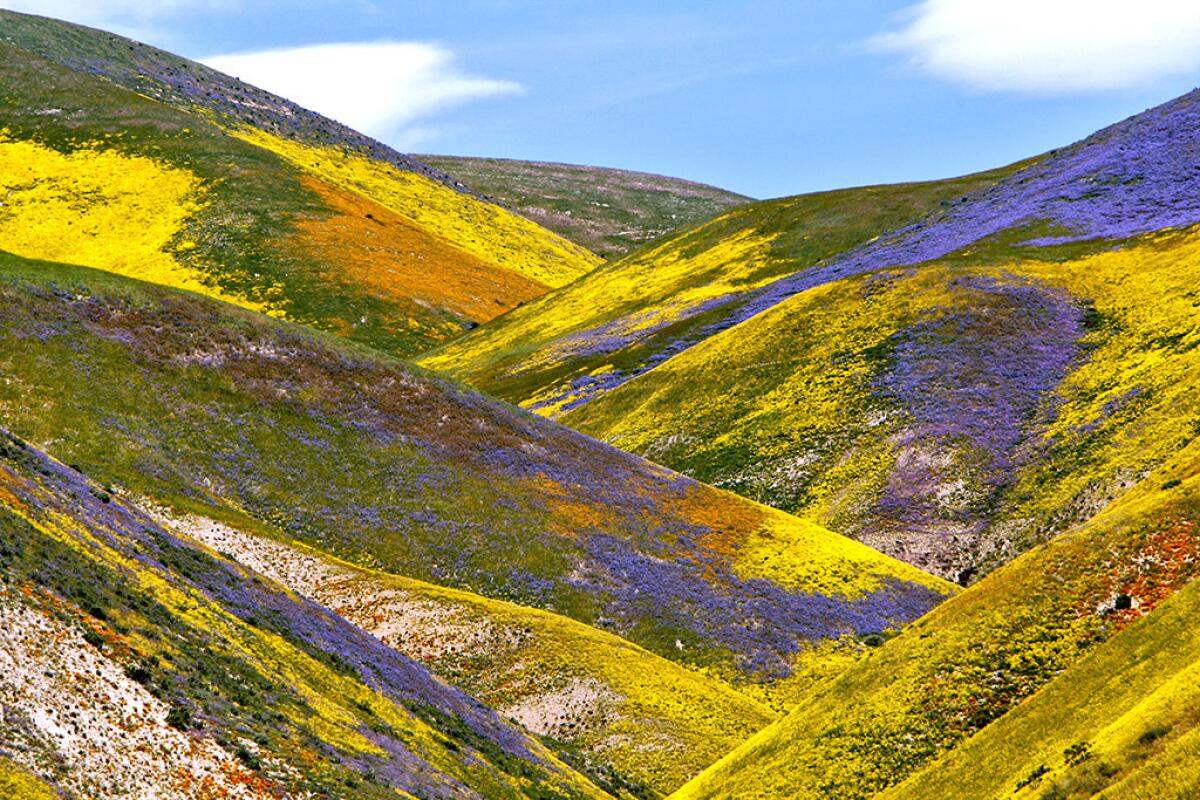
Come spring in California, after even a little bit of rain, people start asking the big questions: When does the Wild Flower Hotline start up and will this year be a superbloom?
The first question is easy: Theodore Payne Foundation’s Wild Flower Hotline resumes on March 8, and updates every Friday into June. You can access the info three ways: as a phone message by dialing (818) 768-1802 ext. 7, by subscribing to the podcast or by reading the online blog.
The information is collected by botanist Lorrae Fuentes, who has assembled a network of botanist colleagues to report their wildflower sightings in Southern and Central California every week, said Theodore Payne Foundation Executive Director Evan Meyer.
Fuentes writes the scripts, which then are narrated by Emmy Award-winning actor Joe Spano (of “Apollo 13,” “NCIS” and “Hill Street Blues” fame, to name a few), “a sweet, charming guy who does this pro bono as a way of giving back to the community,” Meyer said.
But will Fuentes and Spano be reporting another superbloom year?
Our L.A. Plants newsletter
That remains to be seen, Meyer said, but he’s optimistic.
Fragrant big pod ceanothus (Ceanothus megacarpus) are already blooming in the Santa Monica Mountains, he said, and other flowers are preparing to bloom as the weather turns warmer, but popular viewing areas like the Carrizo Plain National Monument in Central California are probably a good month away from revealing their show.
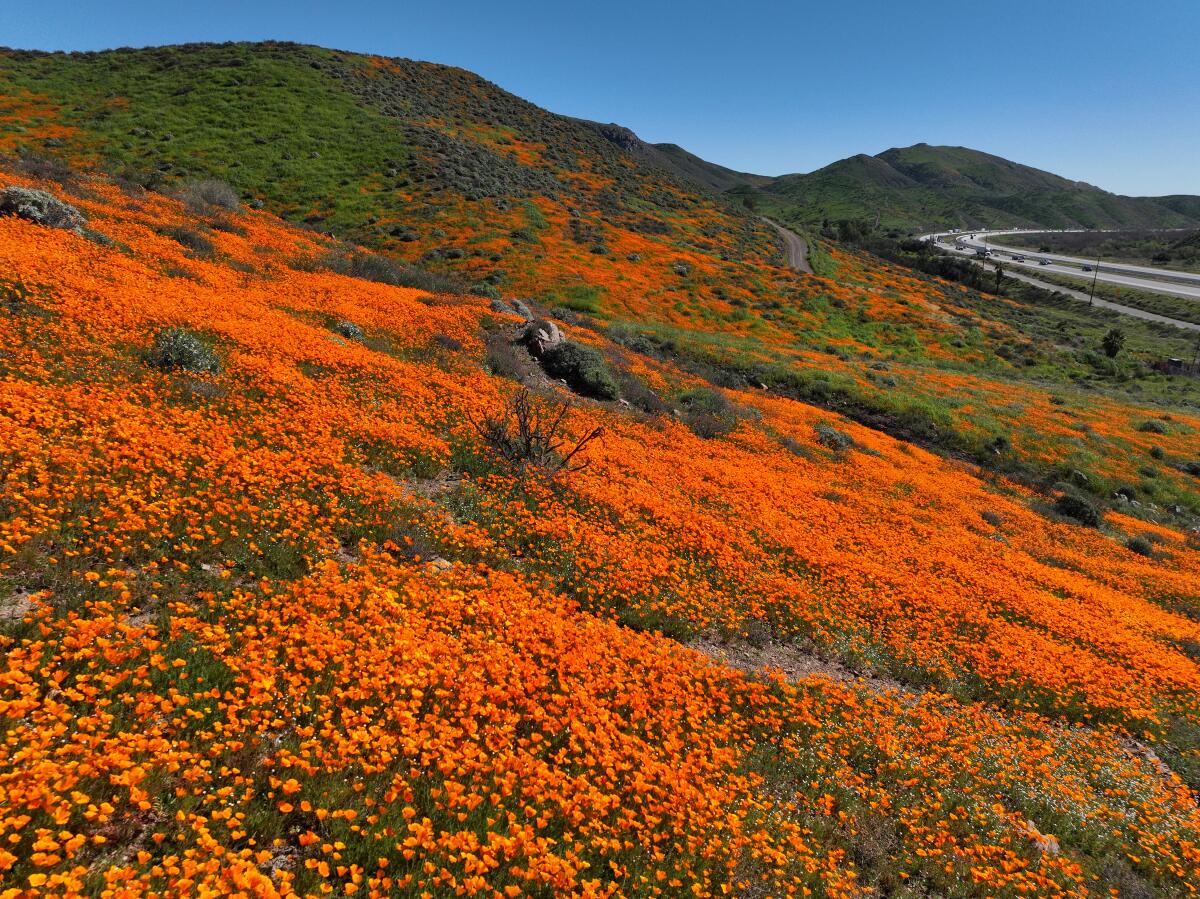
The Carrizo Plain is a particularly good place to view wildflowers, Meyer said, because it doesn’t have the invasive black mustard plants (Brassica nigra) and non-native grasses that can overrun native blooms closer to Los Angeles. “It’s a place to get a glimpse of what California’s wildflowers were like 200 years ago,” he added.
Fast-growing mustard plants have bright yellow flowers that can look pretty from a distance, Meyer said, “but they’re very destructive to the native ecology” and when they dry out later in the year, they become a dangerous fuel for wildfire, so much so that property managers are hiring goats to mow them down on steep slopes.
It’s time to plan your spring veggie garden, but before you start planting, get your raised beds and containers ready for a new season — and check out plant events for March.
Visitors are urged never to pick native wildflowers, so we can continue recharging the seed beds, but invasive, non-native flowers like mustard are fair game. The leaves of young plants are tasty in stir fries and salads (outdoors educator Jason Wise offers many classes for foraging invasive weeds, complete with recipes), and the flowers can make a lovely fabric dye.
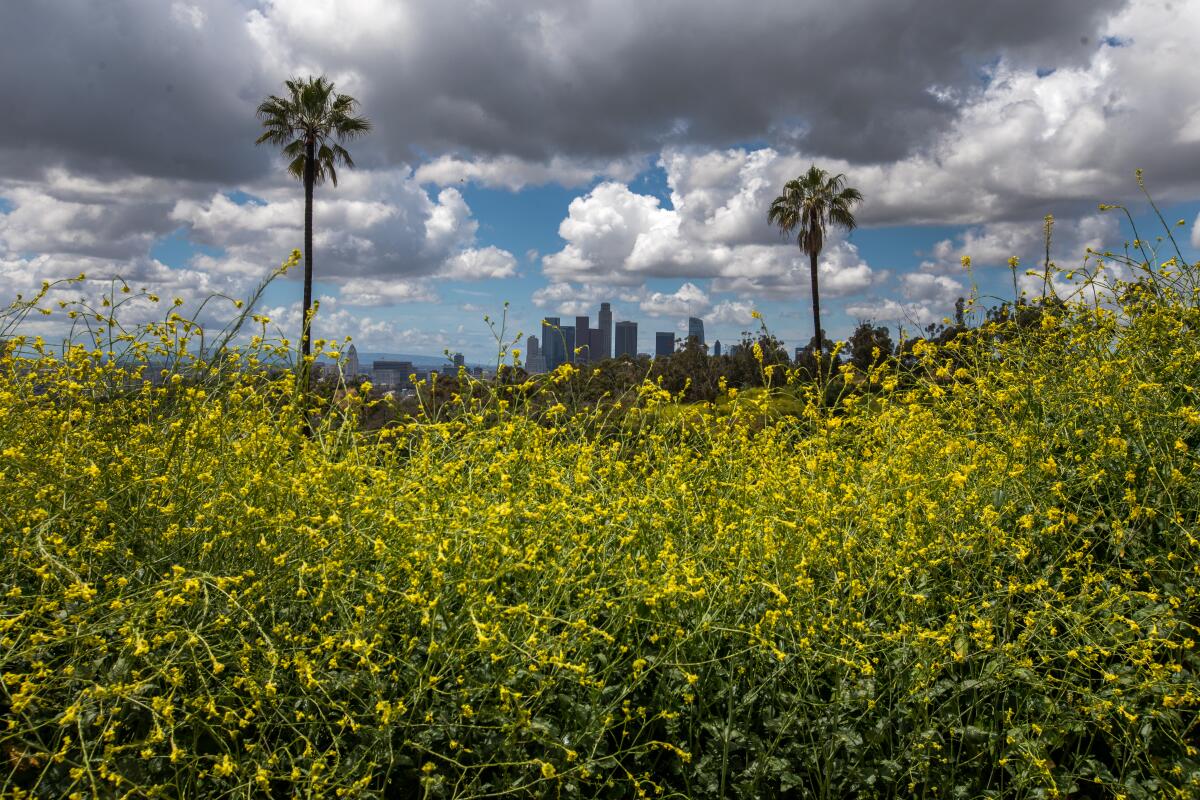
Native wildflower blooms vary depending on the weather and elevation, Meyer said, with the flowers lasting well into August in the high mountains.
“We’ve had above-average rainfall this year, so the soil has stayed consistently moist, which is important,” he said. “And we had a huge seed production from last year, so it’s going to be interesting to see what happens. I think we’ll definitely see a lot of flowers this year.”
The Theodore Payne Foundation’s annual Wild Flower Hotline returns March 3. Be respectful when you visit, but don’t be ashamed you want to see the bloom.
Which does not necessarily mean a superbloom. Scientists tend to be careful about making predictions, but botanist Naomi Fraga, director of conservation programs for the California Botanic Garden, can’t talk about one of her favorite subjects without betraying a little excitement for what might be coming.
The seed bank has been recharged, she said, but that doesn’t mean those seeds will bloom in 2024; wildflower seeds can lie dormant for years before they germinate.
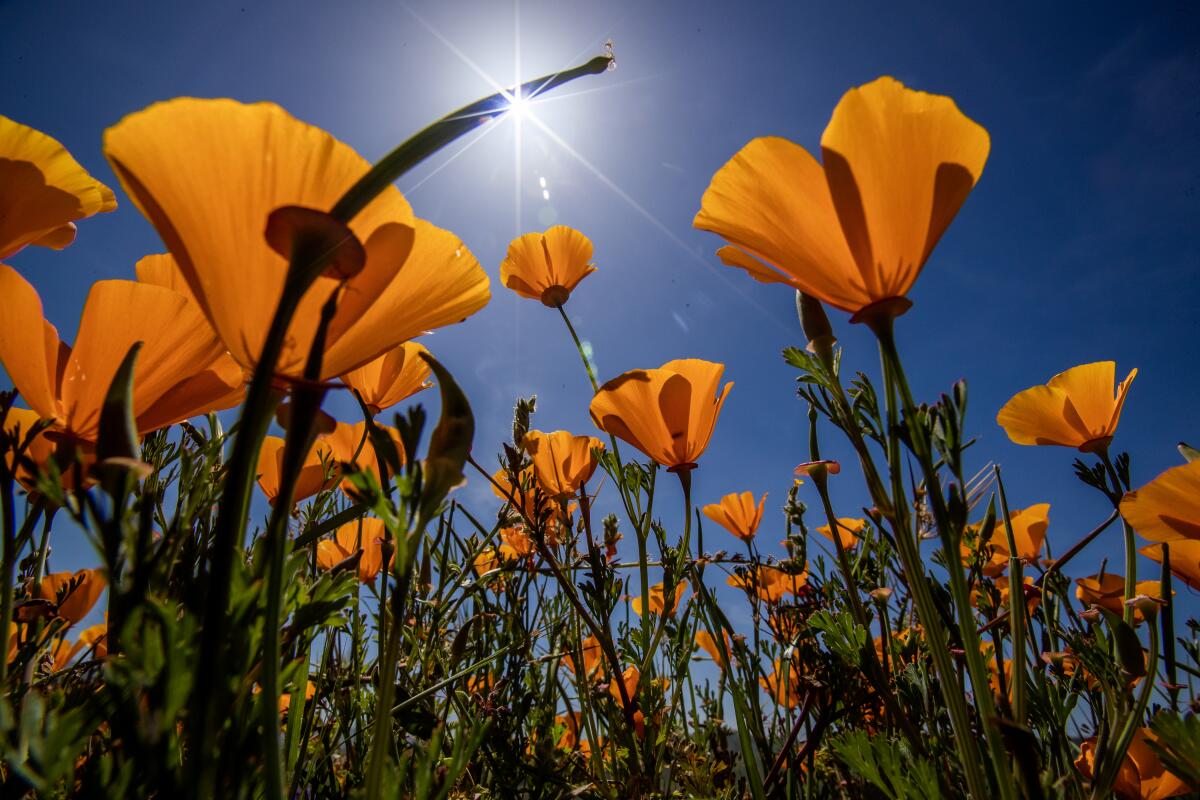
However, Fraga said, some stunning displays already are beginning in desert areas, boosted by heavy rains last August from Tropical Storm Hilary. The Anza Borrego Foundation, for instance, is posting breathtaking photos of vast wildflower blooms on its Instagram page.
That heavy rain in August “primed the ground to receive and hold on to new rain, so everything got absorbed really well when the winter rains came,” Fraga said. “As long as the conditions stay cool and don’t rise very rapidly in March, to where it’s suddenly 90 degrees, I think we have a strong chance of a very extraordinary bloom in the Death Valley region.”
The hills around Los Angeles County are already greening up, she added, so they could have strong displays of lupines, sages (salvias), phacelias and, of course, the state flower, the vibrantly orange California poppy (Eschscholzia californica), if the native flowers aren’t overtaken by invasive mustard and non-native grasses.
Tearing out your lawn but still want a swath of green? Try planting water-saving (and labor-reducing!) California native grasses instead.
Whether it will be a superbloom, however, “I’ll leave to the visitors to judge,” Fraga said, “because, of course, all blooms are super.”
There’s no precise definition for a superbloom, she said, “because it’s kind of in the eye of the beholder. To me, a superbloom is a very prolific bloom that covers a fairly large geography, where areas are blooming in mass and not just pockets here and there.”
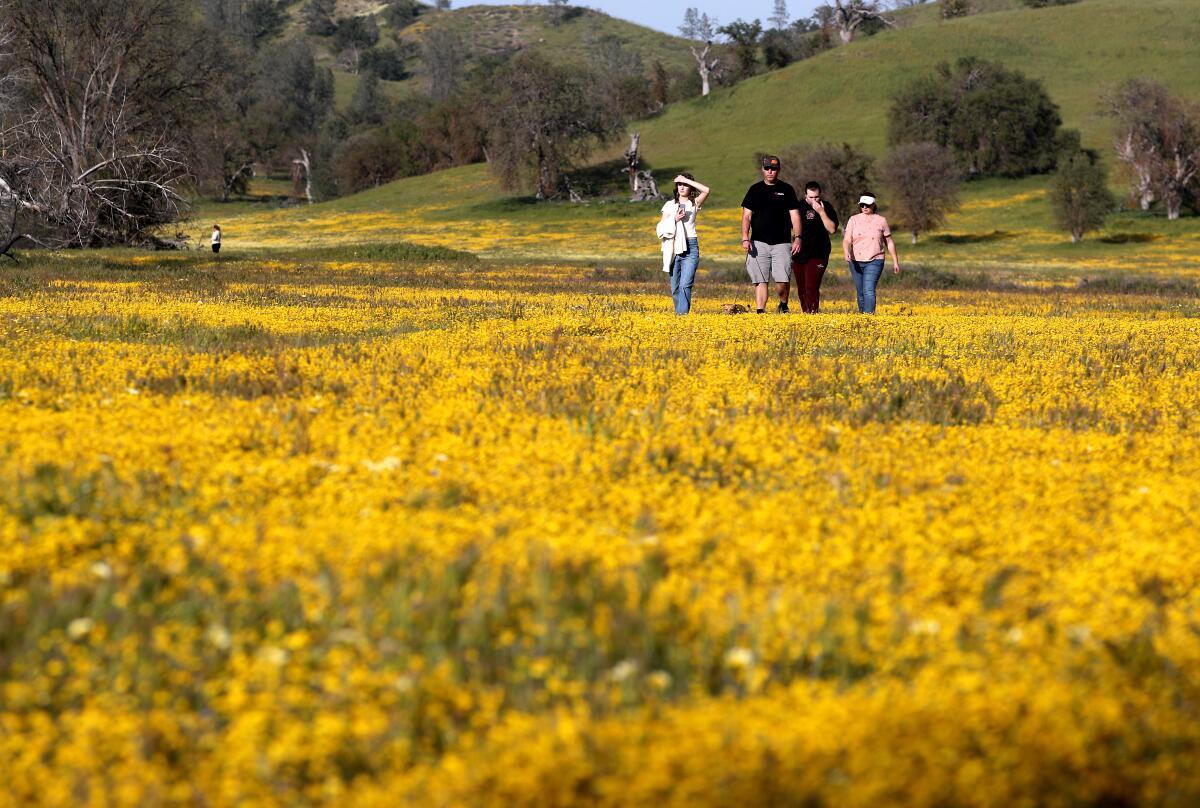
Those “pocket” blooms are still beautiful, Fraga said, but for her, superblooms are events where even the experts are in awe.
“It’s when botanists leave the field covered in pollen,” Fraga said. “Everywhere you go you see profusions, blankets of flowers for miles and miles. You see waves of pollinators like painted lady [butterfly] migrations and sphinx moths. It’s overwhelming because everything is so ... alive.”
So is it the pollen that makes us all go gaga about extraordinary wildflower displays? Or the thrill of seeing our normally staid hills streaked with bright color, as jumbled and vivid as a toddler’s smock after an afternoon of fingerpainting?
![LAKE ELSINORE, CALIF. -- WEDNESDAY, MARCH 13, 2019: California Poppies are abundant at the Super Bloom, Lake Elsinore Poppy Fields in Walker Canyon after the city closed the area in Lake Elsinore, Calif., on March 13, 2019. Calling the stampede a ?poppy nightmare,? Lake Elsinore officials announced they had shut access to the popular poppy fields in Walker Canyon, where crowds had descended in recent weeks to see the super bloom of wildflowers. ?The situation has escalated beyond [our] available resources,? Lake Elsinore said on its City Hall Facebook page. ?No additional shuttles or visitors will be allowed into Walker Canyon. This weekend has been unbearable [for] Lake Elsinore.? The area was reopened Monday. (Allen J. Schaben / Los Angeles Times)](https://ca-times.brightspotcdn.com/dims4/default/5b73dae/2147483647/strip/true/crop/5100x1610+0+895/resize/510x161!/quality/75/?url=https%3A%2F%2Fcalifornia-times-brightspot.s3.amazonaws.com%2Fa9%2F24%2F37202d201c310542bbee56028afd%2F3074782-la-me-walker-canyon-shutdown-18-ajs.JPG)
2024 Wildflower Details
Where to find wildflower information (and gorgeous photos)
“Flowers are definitely something easy to love ... and people are attracted to the colors because we just love a show,” Fraga said. “But for botanists, I think it’s the fleeting nature of wildflowers. It’s like you’re in a race to see everything you can see, because you never know when you’ll see it again. It’s the same phenomenon as a big flash sale — it’s not available all year round.”
The treasure-hunt aspect is enticing, Meyer said, but he sees other factors too, starting with humans just being wired to seek out large-scale biological events, like the fall colors in New England or bison roaming the Great Plains.
“California’s wildflower blooms are one of the most impressive botanical events on the planet,” he said. “They’re so vast and dense and abundant they can be viewed from space, so it’s natural people are drawn to that because it’s so awe-inspiring.”
That appreciation is also in our DNA, Meyer said. “We evolved with plants, and many California wildflower seeds are edible, like chia (Salvia columbariae), so Indigenous Americans would look on those fields and say, ‘There’s our food for the next many months.’”
But mostly, Meyer sees the annual displays “as a salve to our urban world of computers and freeways and cubicles.”
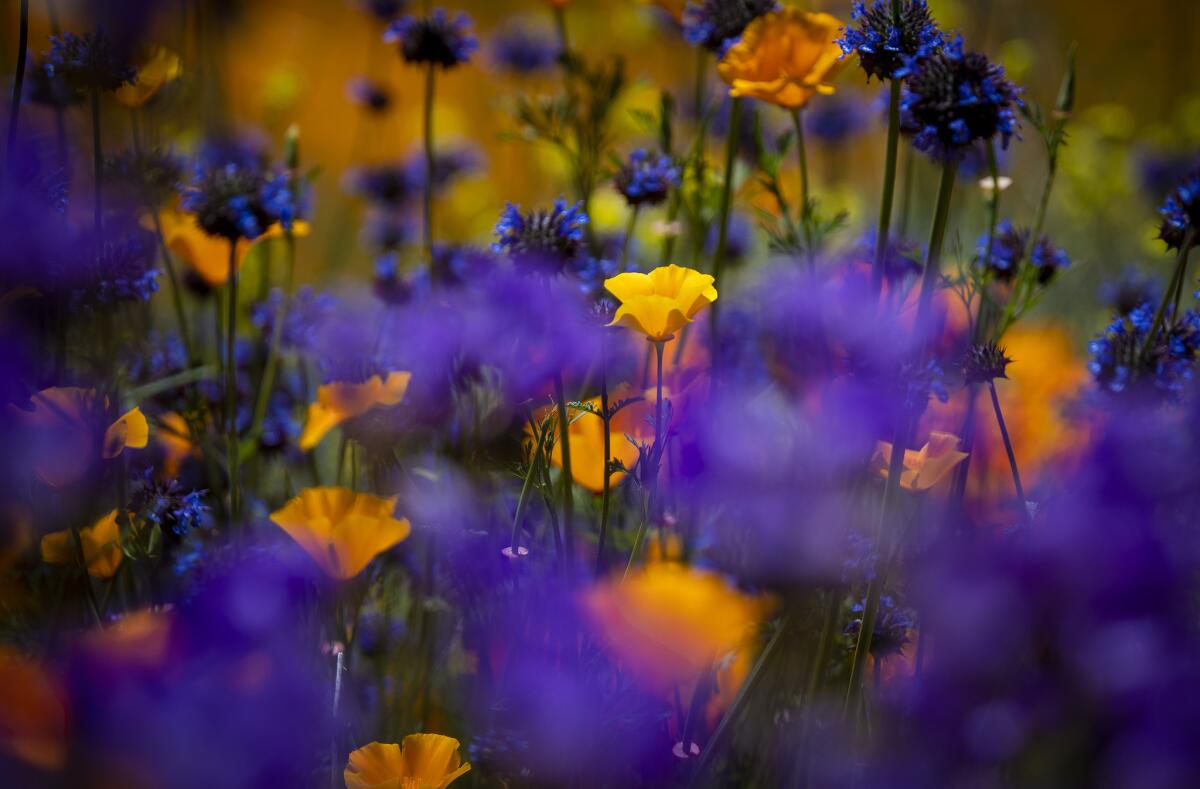
“They allow us to connect with our optimism,” he said.
“It’s like a metaphor for life; a reminder that good things lie in wait. We might not see them, but the seeds are there, under the ground, ready to bloom in great abundance ... so don’t give up hope.”
More to Read
Sign up for our L.A. Times Plants newsletter
At the start of each month, get a roundup of upcoming plant-related activities and events in Southern California, along with links to tips and articles you may have missed.
You may occasionally receive promotional content from the Los Angeles Times.
